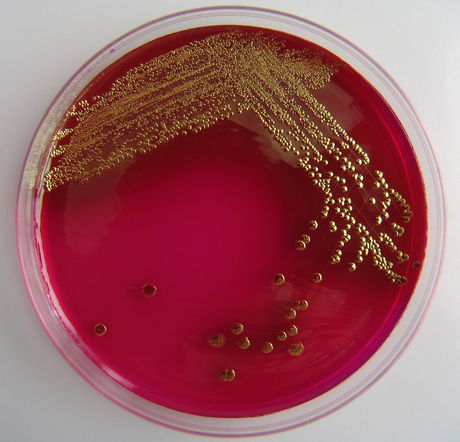Automated plate assessment system exceeds expectations

Shares in LBT Innovations (ASX:LBT) rose almost 20% today as the medical technology company received successful results from a clinical trial of its culture plate analysis technology.
Taking place at TriCore Reference Laboratories, New Mexico, the trial tested LBT’s Automated Plate Assessment System (APAS) against a panel of three microbiologists. The results showed that APAS achieved over 98% sensitivity in its detection of disease-causing bacteria on two of the most widely used culture media — blood agar and MacConkey agar — in urine samples from 5500 patients.
The trial analysed samples from the broad cohort of patients over 10 weeks between June and August 2015. Following incubation, the culture plates were processed by APAS and simultaneously assessed by the three independent qualified microbiologists. The results of the trial included:
- greater than 98% sensitivity in the detection of microbial growth on blood agar, with a 95% confidence interval width in the order of 1%. The study successfully met the set target of 96%.
- greater than 99% sensitivity in the detection of microbial growth on MacConkey agar, with a 95% confidence interval width in the order of 0.5%. The study successfully met the set target of 96%.
- greater than 98% sensitivity in the detection of microbial growth for the whole sample, with a 95% confidence interval width of around 0.5%. The study successfully met the set target of 96%.
- greater than 96% sensitivity for the segmentation of cases with microbial growth typical for urinary tract infections (UTIs), with a 95% confidence interval width in the order of 1%. The overall specificity was around 90%; when there was no growth at all, the specificity was around 98%.
- greater than 98% sensitivity for the detection of microbial growth typical of E. coli, the cause of up to 86% of UTIs in the US and Europe.
All of the primary endpoints were exceeded in the trial, which forms part of LBT’s 510(k) de novo submission to the US FDA. APAS achieved an overall sensitivity of more than 96% in its ability to combine the results from blood agar and MacConkey agar in assessing the presence of bacteria commonly associated with UTIs.
The trial also achieved a number of secondary endpoints regarding APAS’s differentiation and classification of clinical results, with important implications for the automated reporting and integration of patient results with laboratory and hospital information systems.
“The results of this major trial far exceeded our expectations and confirm that our ground-breaking technology can match the performance of a highly trained microbiologist,” said LBT CEO Lusia Guthrie. “The fact that APAS rated so well shows that LBT’s technology can be relied upon to replace a repetitive process that accounts for thousands of man hours in laboratories around the world.”
Having completed earlier trials in Australia, LBT is currently awaiting the results of a small trial in Sydney, which will provide the final series of clinical results required by the FDA for consideration of a Class 2 Medical Device. LBT will complete its 510(k) de novo submission to the FDA for the manual version of APAS by the end of 2015, with a robotic plate-handling system currently being developed in Europe.
LBT Innovations (ASX:LBT) shares were trading 19.05% higher at $0.125 as of around 1 pm on Wednesday.
Personality influences the expression of our genes
An international research team has used artificial intelligence to show that our personalities...
Pig hearts kept alive outside the body for 24 hours
A major hurdle for human heart transplantation is the limited storage time of the donor heart...
Breakthrough antibiotic for mycobacterial infections
The antibiotic candidate, named COE-PNH2, has been optimised to target Mycobacterium...







